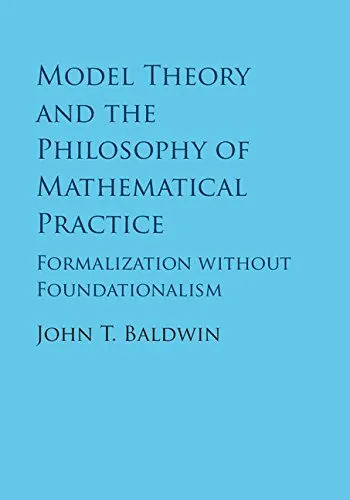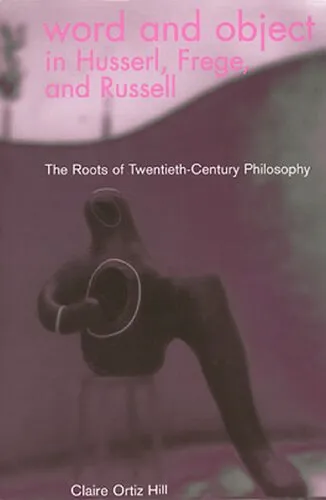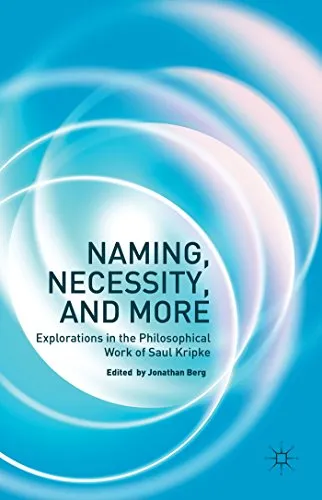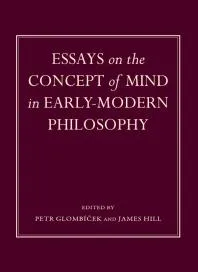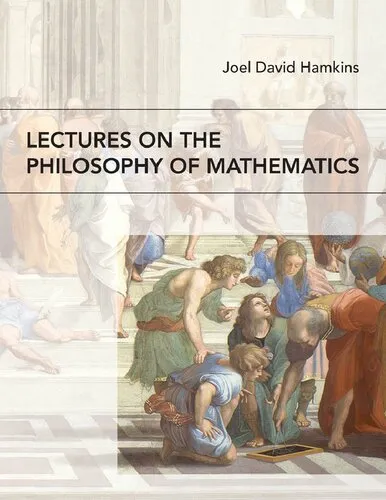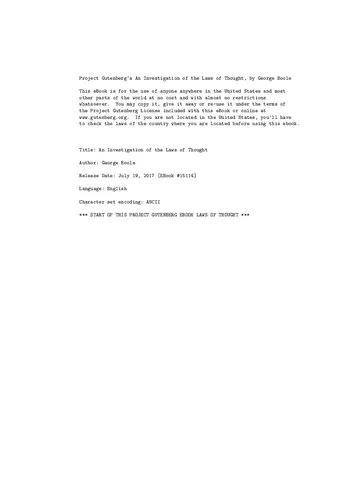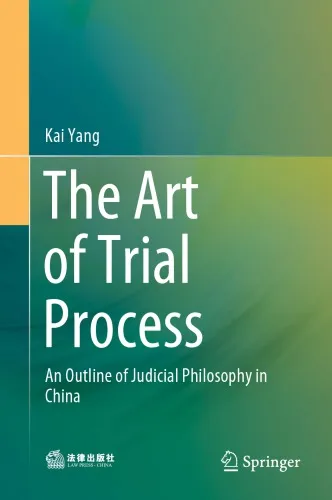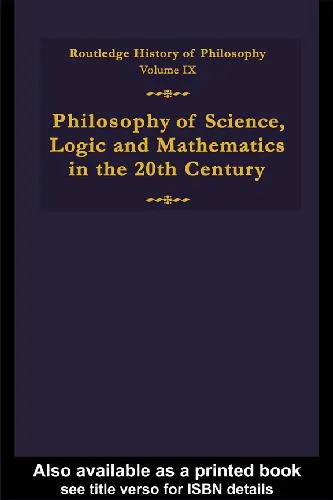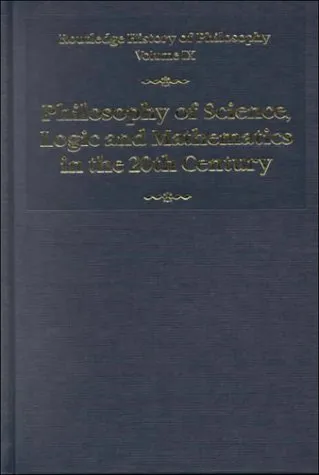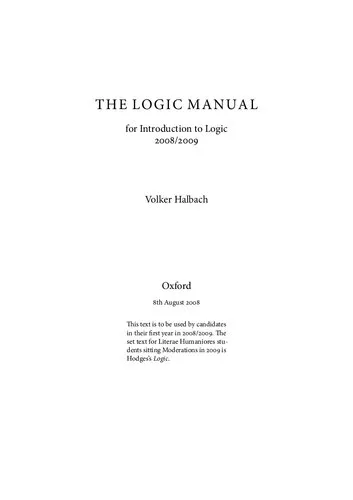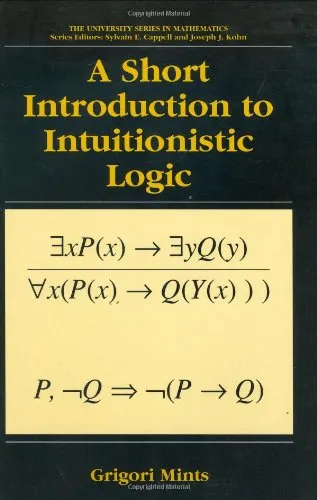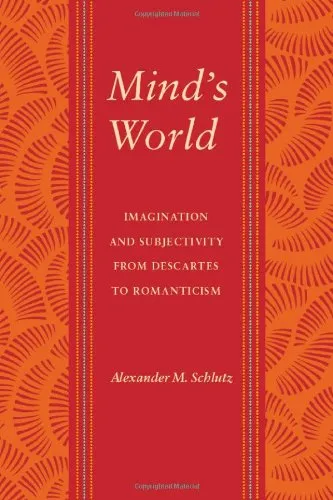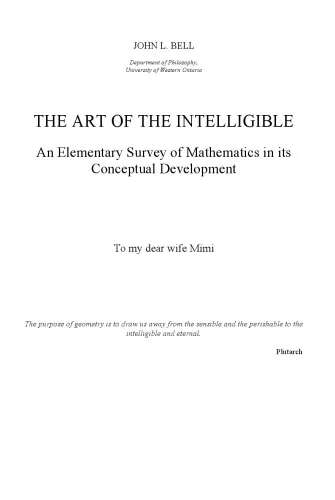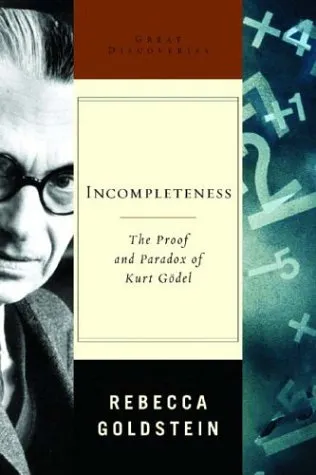Model Theory and the Philosophy of Mathematical Practice: Formalization without Foundationalism
4.0
Reviews from our users

You Can Ask your questions from this book's AI after Login
Each download or ask from book AI costs 2 points. To earn more free points, please visit the Points Guide Page and complete some valuable actions.Related Refrences:
Introduction to Model Theory and the Philosophy of Mathematical Practice: Formalization without Foundationalism
In Model Theory and the Philosophy of Mathematical Practice: Formalization without Foundationalism, I, John T. Baldwin, delve into the interplay between model theory—a branch of mathematical logic—and the philosophy of mathematics. This book challenges conventional perspectives that mathematics must be underpinned by foundational frameworks such as set theory, focusing instead on its breadth and diversity as an evolving intellectual discipline. By exploring how model theory illuminates mathematical practice, the book highlights the role of formalization not as an anchor to an ultimate truth but as a dynamic tool within the mathematical sciences.
The central theme of this work is that formalization is integral to mathematical practice, not because it appeals to an ultimate foundation like axioms or a specific philosophical stance, but because it enriches and shapes the evolving methodologies that mathematical communities adopt. Model theory exemplifies this perspective, providing robust insights into mathematical structures while also respecting their diversity and contextual peculiarities.
Detailed Summary of the Book
This book introduces readers to the role of model theory in understanding how formal systems interact with the broader field of mathematics. It begins by discussing the origins and evolution of model theory, laying a foundation for its utility beyond foundationalist frameworks. By investigating the relationships between structures, theories, and interpretations, the book contends that model theory provides perspectives that challenge the traditional objectives of reducing mathematics to a singular foundational framework like set or category theory.
A key segment of the book focuses on specific examples—from algebra, geometry, and analysis—where model-theoretic techniques have shaped mathematical understanding. These case studies demonstrate how the tools and concepts of model theory are embedded within mathematical practices, particularly in their capacity to generalize and formalize theories without enforcing a fundamentalist hierarchy. Rather than seeking ultimate validation, model theory successfully negotiates between various forms of practice while addressing real mathematical problems.
The book also explores the philosophical implications of this perspective, using the lessons of model theory to reconsider what it means to formalize mathematics. Instead of adhering to classical foundationalist aspirations, the framework introduced here embraces pluralism and pragmatism, offering a nuanced stance that reflects actual mathematical activity.
Key Takeaways
- Model theory doesn't merely provide a foundation for mathematics but serves as a method of interpreting and structuring mathematical sciences.
- Formalization is not about rigid foundational systems but about enabling flexibility, diversity, and practical insights within mathematics.
- Mathematical practice is inherently pluralistic and thrives in contexts where diverse methodologies and logics are allowed to interact.
- Philosophers and practitioners must reconsider their stance on foundationalism and adopt a perspective that aligns more closely with mathematical practices.
Famous Quotes from the Book
"Formalization is not mathematics' search for an ultimate foundation; rather, it is its means to advance, critique, and refine its practice."
"Model theory, far from being a quest to reduce mathematics to a single foundation, illuminates the profound richness of mathematical variation."
"Acknowledging pluralism in mathematical practice does not weaken mathematics but strengthens it, allowing us to harness its multifaceted capabilities."
Why This Book Matters
Model Theory and the Philosophy of Mathematical Practice: Formalization without Foundationalism is a pivotal book because it reframes the dominant narratives around the role and purpose of formalization in mathematics. Instead of aiming to provide an absolute underpinning for mathematics, it illustrates how model theory serves as a versatile means of engaging with complex mathematical problems.
The book bridges an important gap between mathematical logicians and philosophers by demonstrating how insights from model theory relate to real-world mathematical practices. This perspective fosters a better understanding of mathematical pluralism while encouraging the exploration of new ways to formalize and systematize mathematical ideas. It is a critical resource for mathematicians, logicians, philosophers, and anyone intrigued by the evolving landscape of mathematics.
By discarding the need for a singular foundation, this book equips readers to appreciate mathematics as a vibrant, evolving field that thrives on diversity and methodological innovation. This fresh perspective influences not only mathematics but also broader discussions about scientific formalization and philosophical inquiry.
Free Direct Download
You Can Download this book after Login
Accessing books through legal platforms and public libraries not only supports the rights of authors and publishers but also contributes to the sustainability of reading culture. Before downloading, please take a moment to consider these options.
Find this book on other platforms:
WorldCat helps you find books in libraries worldwide.
See ratings, reviews, and discussions on Goodreads.
Find and buy rare or used books on AbeBooks.
1483
بازدید4.0
امتیاز0
نظر98%
رضایتReviews:
4.0
Based on 0 users review
Questions & Answers
Ask questions about this book or help others by answering
No questions yet. Be the first to ask!
